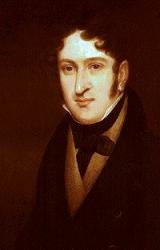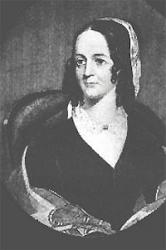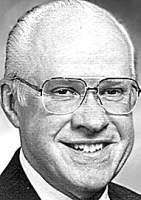Planning worship?
Check out our sister site, ZeteoSearch.org,
for 20+ additional resources related to your search.
- |
User Links
Person Results
William F. Sherwin

1826 - 1888 Person Name: Wm. F. Sherwin Composer of "[Our Father in heaven we hallow thy name]" in The Bright Array Sherwin, William Fisk, an American Baptist, was born at Buckland, Massachusetts, March 14,1826. His educational opportunities, so far as schools were concerned, were few, but he made excellent use of his time and surroundings. At fifteen he went to Boston and studied music under Dr. Mason: In due course he became a teacher of vocal music, and held several important appointments in Massachusetts; in Hudson and Albany, New York County, and then in New York City. Taking special interest in Sunday Schools, he composed carols and hymn-tunes largely for their use, and was associated with the Rev. R. Lowry and others in preparing Bright Jewels, and other popular Sunday School hymn and tune books. A few of his melodies are known in Great Britain through I. D. Sankey's Sacred Songs and Solos, where they are given with his signature. His hymnwriting was limited. The following pieces are in common use:—
1. Grander than ocean's story (1871). The Love of God.
2. Hark, bark, the merry Christmas bells. Christmas Carol.
3. Lo, the day of God is breaking. The Spiritual Warfare.
4. Wake the song of joy and gladness. Sunday School or Temperance Anniversary.
5. Why is thy faith, 0 Child of God, so small. Safety in Jesus.
Mr. Sherwin died at Boston, Massachusetts, April 14, 1888.
-- John Julian, Dictionary of Hymnology (1907)
==================
Sherwin, W. F., p. 1055, i. Another hymn from his Bright Jewels, 1869, p. 68, is "Sound the battle cry" (Christian Courage), in the Sunday School Hymnary, 1905, and several other collections.
--John Julian, Dictionary of Hymnology, New Supplement (1907)
William F. Sherwin
Thoro Harris

1874 - 1955 Arranger of "[Our Father in Heaven, we hallow Thy Name]" in Light and Life Songs Born: March 31, 1874, Washington, DC.
Died: March 27, 1955, Eureka Springs, Arkansas.
Buried: International Order of Odd Fellows Cemetery, Eureka Springs, Arkansas.
After attending college in Battle Creek, Michigan, Harris produced his first hymnal in Boston, Massachusetts, in 1902. He then moved to Chicago, Illinois at the invitation of Peter Bilhorn, and in 1932, to Eureka Springs, Arkansas. He composed and compiled a number of works, and was well known locally as he walked around with a canvas bag full of handbooks for sale. His works include:
Light and Life Songs, with William Olmstead & William Kirkpatrick (Chicago, Illinois: S. K. J. Chesbro, 1904)
Little Branches, with George J. Meyer & Howard E. Smith (Chicago, Illinois: Meyer & Brother, 1906)
Best Temperance Songs (Chicago, Illinois: The Glad Tidings Publishing Company, 1913) (music editor)
Hymns of Hope (Chicago, Illinois: Thoro Harris, undated, circa 1922)
--www.hymntime.com/tch
Thoro Harris
Henry R. Bishop

1786 - 1855 Person Name: H. R. Bishop Composer of "HOME, SWEET HOME" in The Brethren Hymnody Bishop, Henry Rowley, was born at London, Nov. 18, 1786, and died at London, April 30, 1855. See a full notice in the Dictionary of Nat. Biog., v., 91. From 1840 he was occasional and from 1843 to 1848 sole conductor of the Antient Concerts. Of his Twelve Corales...as sung at the Concerts of Ancient Music, for which (with Words expressly written to them) they were adapted and arranged by Sir Henry R. Bishop, 1844 (B. M. copy is H. 878), some are fairly literal translations from the German, others have no connection with their nominal originals. Three were noted in this Dictionary, but their source not having been traced in 1892, we now subjoin them:—
1. Behold, how glorious is yon sky, p. 127, ii. This is from "Wie herrlich ist die neue Welt" in C. H. Graun's oratorio Der Tod Jesu, 1756 (B. M. copy, 11. 1805, catalogued as 1766), the words being by Karl Wilhelm Ramler, b. Feb. 25, 1725, at Colberg, in Pomerania; 1748, Professor of Literature at the Cadet School in Berlin; d. at Berlin, April 11, 1798.
2. God is our Refuge in distress, Our Shield, p. 325, i.
3. O let us praise the Lord, With hearts of true devotion, p. 963, ii., No. 4. The Winchester Hymn Book, 1857, alters stanza i., the original line 1. 3, 4 being:—
"Whose spirit roams abroad,
To calm life's troubled ocean."
Another fairly close version is,"Wake, O wake! a voice is crying," from "Wachet auf," p. 805, ii. [Rev. James Mearns, M.A.]
--John Julian, Dictionary of Hymnology, New Supplement (1907)
Henry R. Bishop
Sarah Josepha Buell Hale

1788 - 1879 Person Name: Sarah J. Hale Author of "Our Father in Heaven" in The Cyber Hymnal Hale, Sarah Josepha, née Buell, born at Newport, New Hampshire, 1795, and married to David Hale, a lawyer, who died in 1822. Mrs. Hale edited The Ladies' Magazine, Boston, from 1828; and Godey's Ladies’ Book, Philadelphia, from 1837, besides publishing several works. Her hymn, “Our Father in heaven, we hallow Thy name" (The Lord's Prayer), appeared in Mason & Greene's Church Psalmody, 1831, No. 553, in 2 stanzas of 8 lines. Mrs. Hale, who was a member of the Protestant Episcopal Church, died in 1879. [Rev. F. M. Bird, M.A.]
--John Julian, Dictionary of Hymnology (1907)
Sarah Josepha Buell Hale
Robert Schumann

1810 - 1856 Person Name: Schumann Composer of "[Our Father in heav'n]" in Sacred Songs for Little Singers Robert Alexander Schumann DM Germany 1810-1856. Born at Swickau, Saxony, Germany, the last child of a novelist, bookseller, and publisher, he began composing music at age seven. He received general music instruction at the local high school and worked to create his own compositions. Some of his works were considered admirable for his age. He even composed music congruent to the personalities of friends, who took note of the anomaly. He studied famous poets and philosophers and was impressed with the works of other famous composers of the time. After his father’s death in 1826, he went to Leipzig to study law (to meet the terms of his inheritance). In 1829 he continued law studies in Heidelberg, where he became a lifelong member of Corps Saxo-Borussia Heidelberg. In 1830 he left the study of law to return to music, intending to pursue a career as a virtuoso pianist. His teacher, Friedrich Wieck, assured him he could become the finest pianist in Europe, but an injury to his right hand (from a practicing method) ended that dream. He then focused his energies on composition, and studied under Heinrich Dorn, a German composer and conductor of the Leipzig opera. Schumann visited relatives in Zwickau and Schneeberg and performed at a concert given by Clara Wieck, age 13 at the time. In 1834 he published ‘A new journal for music’, praising some past composers and deriding others. He met Felix Mendelssohn at Wieck’s house in Leigzig and lauded the greatness of his compositions, along with those of Johannes Brahms. He also wrote a work, hoping to use proceeds from its sale towards a monument for Beethoven, whom he highly admired. He composed symphonies, operas, orchestral and chamber works, and also wrote biographies. Until 1840 he wrote strictly for piano, but then began composing for orchestra and voice. That year he composed 168 songs. He also receive a Doctorate degree from the University of Jena that year. An aesthete and influential music critic, he was one of the most regarded composers of the Romantic era. He published his works in the ‘New journal for music’, which he co-founded. In 1840, against the wishes of his father, he married Clara Wieck, daughter of his former teacher, and they had four children: Marie, Julie, Eugenie, and Felix. Clara also composed music and had a considerable concert career, the earnings from which formed a substantial part of her father’s fortune. In 1841 he wrote 2 of his 4 symphonies. In 1843 he was awarded a professorship in the Conservatory of Music, which Mendelssohn had founded in Leipzig that same year, When he and Clara went to Russia for her performances, he was questioned as to whether he also was a musician. He harbored resentment for her success as a pianist, which exceeded his ability as a pianist and reputation as a composer. From 1844-1853 he was engaged in setting Goethe’s Faust to music, but he began having persistent nervous prostration and developed neurasthenia (nervous fears of things, like metal objects and drugs). In 1846 he felt he had recovered and began traveling to Vienna, Prague, and Berlin, where he was received with enthusiasm. His only opera was written in 1848, and an orchestral work in 1849. In 1850 he succeeded Ferdinand Hiller as musical director at Dusseldorf, but was a poor conductor and soon aroused the opposition of the musicians, claiming he was impossible on the platform. From 1850-1854 he composed a wide variety of genres, but critics have considered his works during this period inferior to earlier works. In 1851 he visited Switzerland, Belgium, and returned to Leipzig. That year he finished his fourth symphony. He then went to Dusseldorf and began editing his complete works and making an anthology on the subject of music. He again was plagued with imaginary voices (angels, ghosts or demons) and in 1854 jumped off a bridge into the Rhine River, but was rescued by boatmen and taken home. For the last two years of his life, after the attempted suicide, Schumann was confined to a sanitarium in Endenich near Bonn, at his own request, and his wife was not allowed to see him. She finally saw him two days before he died, but he was unable to speak. He was diagnosed with psychotic melancholia, but died of pneumonia without recovering from the mental illness. Speculations as to the cause of his late term maladies was that he may have suffered from syphilis, contracted early in life, and treated with mercury, unknown as a neurological poison at the time. A report on his autopsy said he had a tumor at the base of the brain. It is also surmised he may have had bipolar disorder, accounting for mood swings and changes in his productivity. From the time of his death Clara devoted herself to the performance and interpretation of her husband’s works.
John Perry
Robert Schumann
Edward L. White
1809 - 1851 Person Name: E. L. White Composer of "[Our Father in heaven]" in Select Songs for the Singing Service
Edward L. White
William Gawler
1750 - 1809 Composer of "GOSHEN" in The Cyber Hymnal Born: 1750, Lambeth, London, England.
Died: March 15, 1809, London, England.
Son of a schoolmaster, Gawler was an organist, teacher, and composer. His Op. 2, a collection of pieces for harpsichord or pianoforte, was published by Preston in the Strand in 1780. Harmonia Sacra, containing psalm tunes, anthems, hymns, and a voluntary, appeared in 1781. In 1784 Gawler was appointed organist (with a salary of £63l) to the Asylum for Female Orphans, Lambeth; he composed for their chapel music (Op. 16) to ‘Twelve Divine Songs’ by Isaac Watts, and collected the psalm tunes in use there in 1785; two sets of voluntaries for the organ (Grove); and some patriotic songs. He was parish clerk at Lambeth for many years, retiring in 1802. His works include:
Psalms and Hymns Used at the Asylum for Female Orphans, 1785
--www.hymntime.com/tch/
William Gawler
Marcos Antônio da Fonseca Portugal
1762 - 1830 Person Name: Marcos Portugal Composer of "[Our Father in heaven, we hallow Thy name]" in Popular Hymns Number 2
Marcos Antônio da Fonseca Portugal
Harold H. DeCou

1932 - 2008 Person Name: Harold DeCou Composer of "[Our Father in Heaven, we hallow Thy Name]" in Favorites Number 6 Peoria - Harold H. DeCou, 76, of Peoria died at 7:30 a.m. Friday, Dec. 26, 2008, at his residence.
He was born Oct. 7, 1932, in Philadelphia, Pa., to Harold H. and Kathrine Holbrook DeCou. He married Rose N. Layman on June 25, 1955, in Brookfield, Ill. She survives.
Also surviving are his four sons, Harold H. (Nancy) DeCou III of Apple Valley, Calif., Mark T. DeCou of Peoria, Jonathan (Shari) DeCou of Muskegon, Mich., and Perry A. (Suiann) DeCou of Ramona, Calif.; eight grandchildren; and two great-grandchildren.
He attended Temple University in Philadelphia.
He was a concert artist (piano and organ), composer, arranger and orchestrator for 58 years.
He served as church organist at Grace Presbyterian Church in Peoria from 1988 to 2001. He was a member of Redeemer Presbyterian Church in Peoria. He is also an Honorary Fellow of Shenandoah Society Award.
…
Burial will be in Springdale Cemetery in Peoria.
…
Memorials may be made to Redeemer Presbyterian Church.
Published in Peoria Journal Star on Dec. 27, 2008 - See more at:
http://www.legacy.com/obituaries/pjstar/obituary.aspx?n=harold-decou&pid=121874596#sthash.k7o3BCQY.dpuf
Harold H. DeCou


 My Starred Hymns
My Starred Hymns



